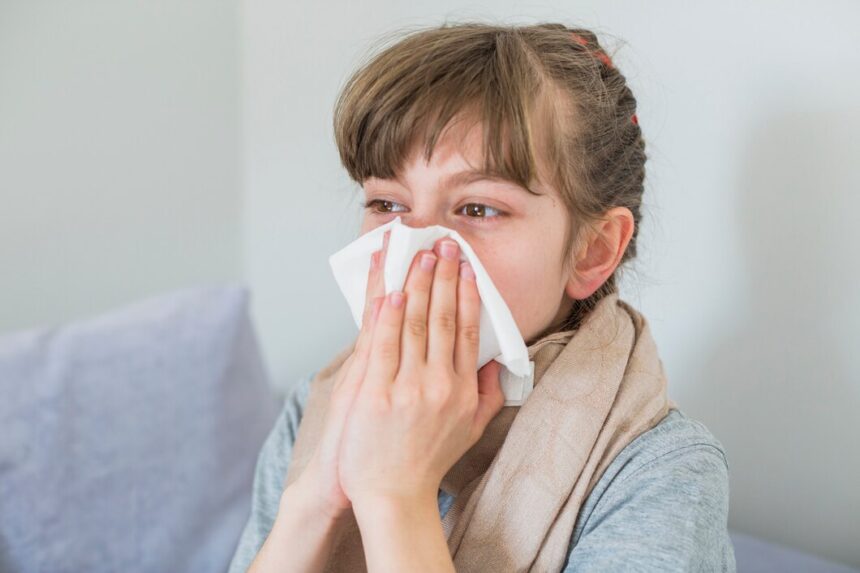Allergies can be challenging to identify in children, especially since their immune systems are still developing. Recognizing the early signs and symptoms of allergies is crucial for managing them effectively and ensuring your child’s comfort and well-being. This article explores common early indicators of allergies in children and provides guidance on what to look for.
1. Skin Reactions
Eczema: Also known as atopic dermatitis, eczema is a common allergic condition that manifests as itchy, red, and inflamed skin. It often appears on the face, elbows, and knees, and can be a sign of an underlying allergy.
Hives: Raised, itchy welts or bumps on the skin, known as hives or urticaria, are another possible allergic reaction. They can vary in size and may appear suddenly.
2. Respiratory Symptoms
Runny or Stuffy Nose: Allergic rhinitis, or hay fever, can cause persistent nasal congestion, a runny nose, and frequent sneezing. These symptoms are often triggered by allergens like pollen, dust mites, or pet dander.
Coughing and Wheezing: Allergies can also lead to coughing and wheezing due to inflammation and mucus production in the airways. This can be particularly noticeable during or after exposure to known allergens.
3. Gastrointestinal Issues
Stomach Pain and Vomiting: Allergic reactions to certain foods can cause gastrointestinal symptoms such as stomach pain, nausea, or vomiting. Food allergies, especially to milk, eggs, peanuts, or shellfish, are common culprits.
Diarrhea: Frequent loose stools or diarrhea may also indicate a food allergy, particularly if accompanied by other symptoms like rash or vomiting.
4. Eye Symptoms
Itchy, Red, or Watery Eyes: Allergic conjunctivitis is characterized by red, itchy, and watery eyes. This can be triggered by allergens such as pollen or dust and often accompanies other allergic symptoms.
Swollen Eyelids: In more severe cases, allergies can cause swelling of the eyelids, adding to discomfort and irritation.
5. Behavioral Changes
Irritability or Discomfort: Allergies can make children feel uncomfortable, leading to increased irritability or fussiness. If a child is unusually cranky or distressed without a clear cause, allergies might be worth considering.
Difficulty Sleeping: Allergic symptoms such as nasal congestion or itching can disrupt sleep, leading to restless nights and daytime fatigue.
When to Seek Medical Advice
If you suspect that your child is experiencing allergic reactions, it’s important to consult with a healthcare professional. They can perform tests to identify specific allergens and provide guidance on managing symptoms. In some cases, allergies can lead to more serious conditions such as asthma or anaphylaxis, so timely medical evaluation is crucial.
Managing Allergies in Children
- Identify and Avoid Triggers: Once allergens are identified, take steps to minimize exposure. This may involve changes in diet, environmental modifications, or avoiding certain activities.
- Medications: Over-the-counter antihistamines and nasal sprays can help manage mild allergic symptoms. For more severe cases, your doctor may prescribe stronger medications or allergy treatments.
- Allergy Testing: Allergy tests, including skin tests or blood tests, can help pinpoint specific allergens and guide treatment plans.
- Education and Awareness: Teach older children about their allergies and how to avoid triggers. This is especially important for food allergies, where they need to know what to avoid in various settings.
Recognizing the early signs and symptoms of allergies in children is essential for effective management and improving their quality of life. By staying vigilant and seeking appropriate medical advice, parents can help their children navigate allergies and maintain their health and comfort.










